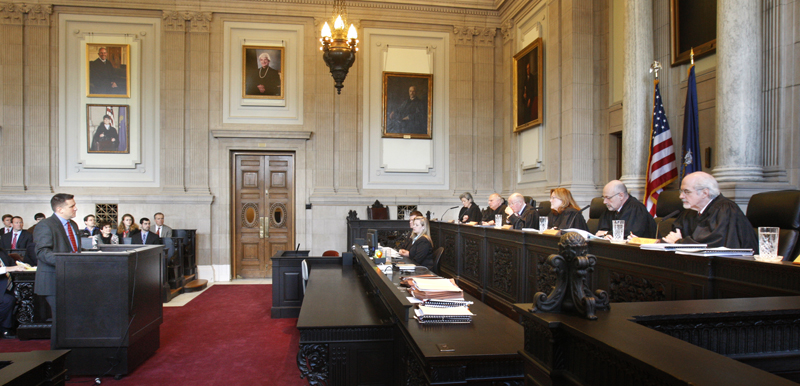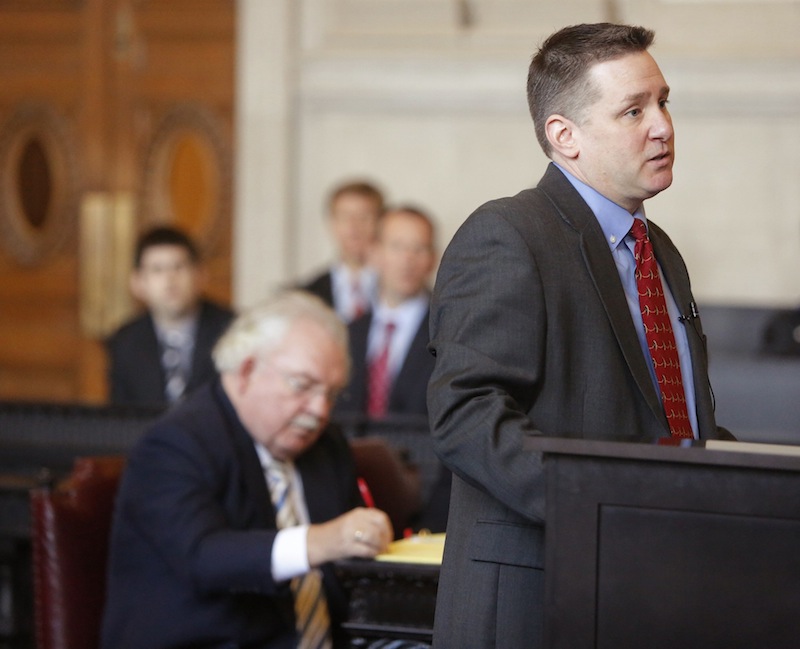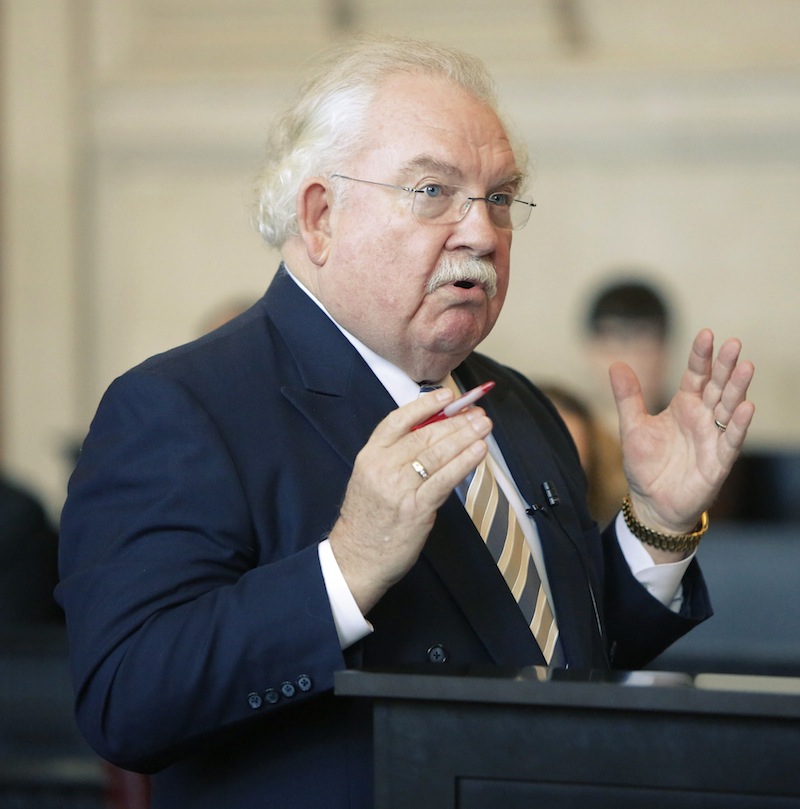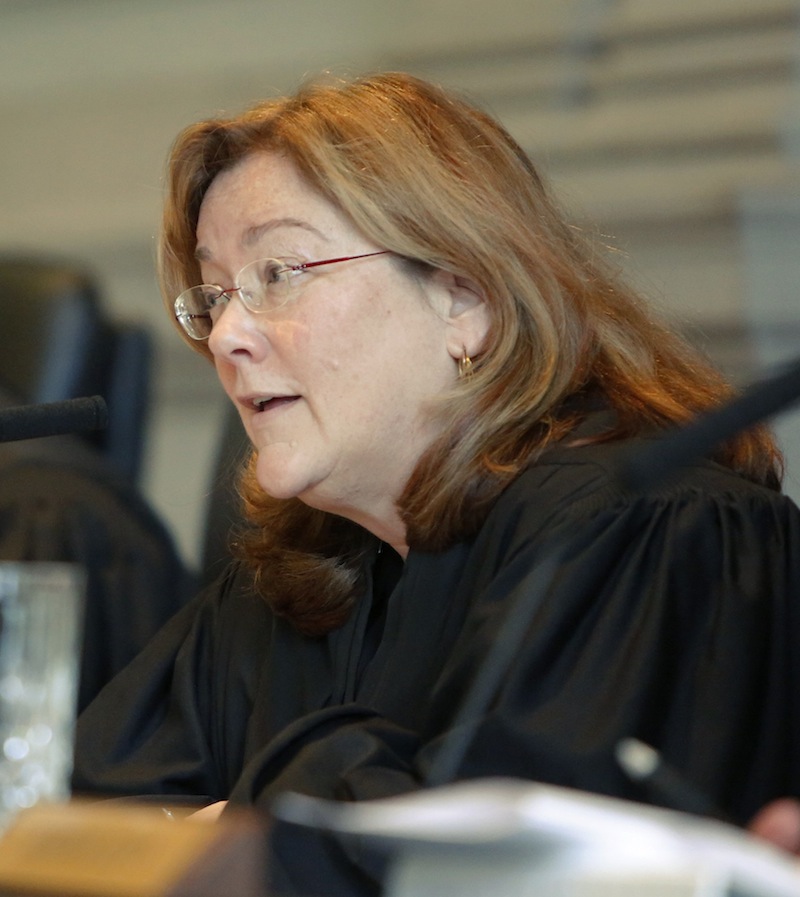PORTLAND — A prosecutor in the Kennebunk prostitution case told the state’s highest court Wednesday that customers of prostitutes are no different from secret lovers who choose to have relations behind closed doors.
York County Assistant District Attorney Patrick Gordon argued before the Maine Supreme Judicial Court that people in both instances have a legal expectation of privacy, and that it could be considered a crime to videotape their sex acts.
Gordon was seeking to reverse a trial judge’s decision last month to dismiss 46 counts against Mark Strong Sr., all related to violation of privacy
Strong, 57, of Thomaston, is one of the two key defendants in the high-profile case. He is accused of conspiring with Alexis Wright to run a one-woman prostitution business from her Zumba studio in Kennebunk, and helping her to make video recordings of her encounters with customers.
Thirteen charges are still pending against Strong: 12 counts of promotion of prostitution and a single count of conspiracy to promote prostitution.
Wright, 30, of Wells, is scheduled to stand trial on 106 counts in May.
Expanding on his secret-lover scenario on Wednesday, Gordon said: “No one would argue for a minute that this person didn’t expect privacy. Why would it be any different if money was exchanged?”
At that point. Chief Justice Leigh Saufley interrupted, asking: “Isn’t that a world of difference?”
The exchange immediately changed the tone of the hearing as the seven justices began peppering Gordon with questions, taking up most of the 15 minutes allowed for oral arguments.
Justices, for example, asked Gordon why he didn’t file an objection when Strong’s attorneys filed the motion to dismiss the 46 charges as the trial was about to begin.
Strong’s attorney, Daniel Lilley, also had his presentation cut short by questions from the justices.
“We submit that the Superior Court correctly determined that patrons of prostitution have no expectation of privacy,” Lilley said.
That prompted a response from Justice Jon Levy, who asked Lilley whether that was a matter for a jury to decide.
“Those people were there for the sole purpose of engaging in sex for money,” Lilley said. “All of those johns, or patrons of prostitution, have been convicted.”
The prosecution’s list of witnesses for Strong’s trial includes 18 men who have been convicted of engaging a prostitute in the case.
Justice Ellen Gorman asked Lilley about the timing of his motion, seeking dismissal of the 46 counts as jury selection was about to begin.
“Why . . . literally on the eve of the trial?” Gorman asked.
Lilley said he had previously filed many other unsuccessful motions that he had expected to win.
“As soon as we really got into the case, it became clear that these charges did not apply,” he said.
Wright’s attorney, Sarah Churchill, has filed a brief with the Supreme Court as an interested party, because Wright also is charged with 46 counts of violation of privacy.
Churchill attended the oral arguments but was not asked to speak.
The high court took no action after the hearing and set no time table for when it might rule.
Strong was set to stand trial when Justice Nancy Mills decided on Jan. 25 to grant the motion to dismiss the 46 counts of violation of privacy on the grounds that prostitution customers cannot have a legal expectation of privacy while committing a crime.
Prosecutors immediately called for a halt to the trial to appeal the decision.
Wright, meanwhile, has pleaded not guilty to violation of privacy, promotion of prostitution, engaging in prostitution, conspiracy, tax offenses and receiving welfare benefits when ineligible.
The case has drawn attention in part because Wright is suspected of keeping a meticulous list of her customers, including prominent figures.
At least 66 have been charged, and at least 18 have pleaded guilty to engaging a prostitute.
Scott Dolan can be contacted at 791-6304 or at:
sdolan@pressherald.com
Send questions/comments to the editors.






